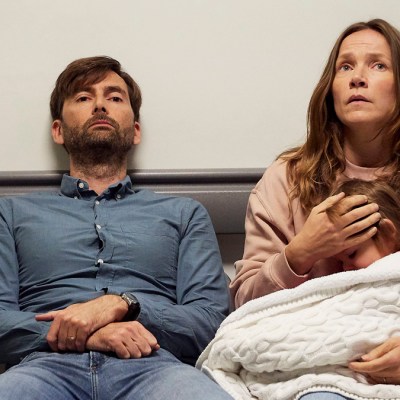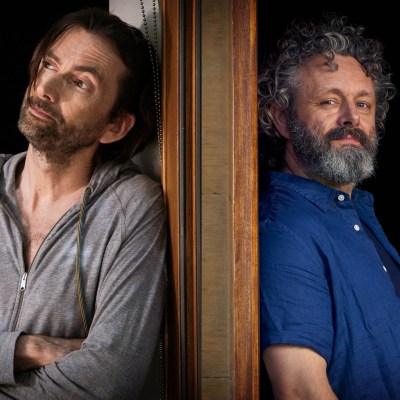David Tennant on There She Goes: ‘Parenting is Often Sentimentalised’
As comedy-drama There She Goes returns for series two, the cast and creators explain why unvarnished honesty is central to its story of parenting a child with severe learning disabilities
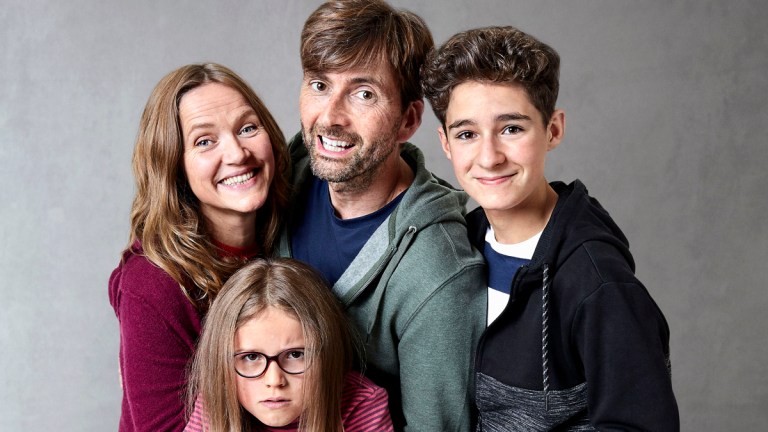
When the first series of Shaun Pye and Sarah Crawford’s autobiographically inspired comedy-drama aired, they were prepared for a mixed reaction. Their dramatisation of life raising a severely learning disabled child would likely shock, cause discomfort, and – in these furious days of gladiatorial online parenting forums – almost certainly provoke judgment and criticism. What they weren’t necessarily expecting were stories about poo.
“The most common reaction from parents or siblings with a child similar to Jo [Sarah and Simon’s learning disabled daughter on whom the character of Rosie, played by Miley Locke, is based] is they’ll come up and say ‘Saw the show, loved the show’ and then start telling me funny stories.” Faecal hijinks, outrageous incidents and family code words… “They can’t wait to tell me,” says Pye speaking at the series two press launch. “They just want to start talking about their children in a joyous, celebratory way, but also, not.”
The “also, not” of it all is the real power of the show according to actor David Tennant. In There She Goes, Tennant plays a version of comedy writer Shaun Pye. “It’s not Michael Sheen doing his Tony Blair,” says Tennant. “I’m not trying to be Shaun. Obviously it’s very inspired by him, but I keep my own accent for instance.”
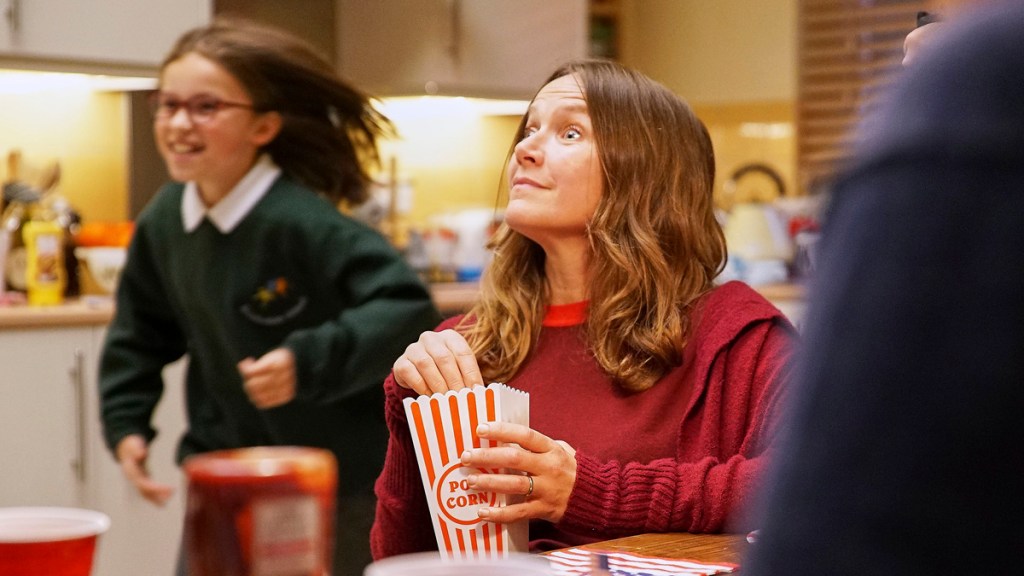
Tennant tells assembled press that though There She Goes is about raising a child with a learning disability, “it’s also just about parenting, and about how hit and miss that is, and how any one of us as a parent never feels that we’re ever getting it right.”
“It’s actually quite rare to see the honesty of that written down. I think parenting is often sentimentalised, and sort of cleaned-up for consumption.”
A father of five, Tennant describes family life as full of triumphs and disasters. In There She Goes, he feels any parent will recognise the honesty of the way Crawford and Pye have told their story. “That, I think, is the killer for this show. Just how true it is.”
Co-lead Jessica Hynes, who deservedly won a Bafta for her moving performance as Rosie’s mother Emily in series one (available to stream now on BBC iPlayer), agrees. “There’s something very truthful about the struggle that parents face sometimes, and how hard it gets, and how easy it is to lose sight of each other.” She knows lots of parents who love that aspect of the show, “just watching real people struggling and coming through.”
There She Goes’ unvarnished honesty made series one hard viewing for people close to the couple in real life, says Sarah Crawford. Both series are divided between two timelines, the very early days of Rosie’s life as a baby, when the life-altering implications of her still-undiagnosed chromosomal condition have knocked the family off their feet, and the present-day, when Rosie’s a rambunctious ten-year-old whose family have – largely – found ways to cope.
The dual timelines were a suggestion from producer Clelia Mountford. “When we were writing it, we thought ‘Well, there’s funny things that happen with Jo’ and then ‘Do we want to completely ignore the fact that it was awful for a while?’” Told chronologically, the tone would have been unbalanced, Pye explains, too miserable to begin with and too sitcom-y later on. “We wanted to tell a broader truth”
“The joy of it is that you can have the early timeline, which is darker and more miserable, but in a way, the lightness of the later timeline tells the audience that it’s all going to be fine. Nothing horrible is going to happen to this little girl – there’s light at the end of it, so enjoy or embrace the darkness in the early timeline because it does get better, don’t worry.”
The early timeline was difficult for Crawford’s close friends to watch, she says. “I had a couple of people say to me that they felt like they hadn’t been very good friends at the time, which wasn’t true at all, but I suppose we didn’t necessarily share all of the ups and downs, and obviously we’re focussing on the downs in that timeline.”
Pye quips, “Basically back in those days there were things that were so deeply personal that Sarah couldn’t share them with her family or friends, so she just thought, in 11 years’ time we’ll put them on the telly!”
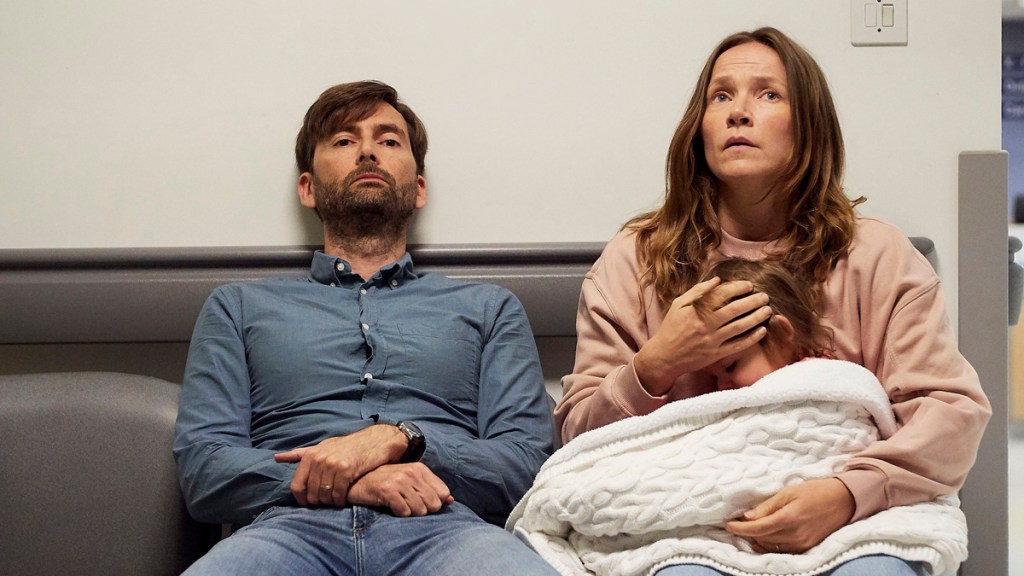
Despite having co-written both series with Pye, Crawford, whose day job is in a hospital, chose not to be credited as a writer on series one. “Shaun had always suggested that it would be both our names on there. I don’t know what changed, I suppose I felt less uncomfortable.”
In series two, airing on BBC Two after starting life on BBC Four, it’s 18 months later says Tennant, and the family is “still sort of scrabbling on, trying to make sense of things.” The show’s horizons have expanded. They venture out of the house more, seeing what Tennant calls “the broader canvas of life.” Series two introduces Simon’s father for the first time, shows the family on holiday and goes into Rosie’s school for a sports day episode where “there’s a lovely Hitchcockian cameo by [Sarah and Shaun’s daughter] Joey which viewers can look out for.”
Tennant agrees with Q&A moderator James Rampton that There She Goes is ultimately, an uplifting series, but doesn’t think that’s its main achievement. “It sets out to tell a true story, which I think ultimately is life-affirming, and full of happiness, and full of joy. But its un-sentimentality, I think, is its huge strength.”
“You meet families who’ve been in similar situations, and they’re sort of thrilled and delighted and moved that their life is finally being reflected in a way that they’ve just never seen before. The imperfection of it, the difficulty of it. The fact that sometimes it’s just awful, and then other times it’s joyous, and it doesn’t necessarily end with a kind of happy-ever-after sentimental twinkle.”
There She Goes series two starts tonight at 9.30pm on BBC Two

